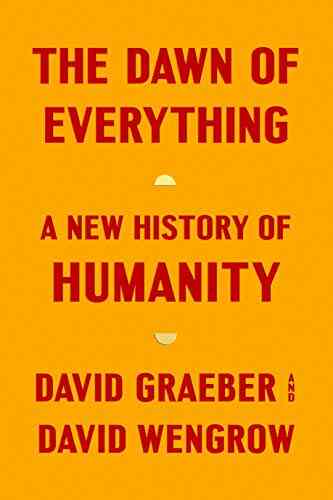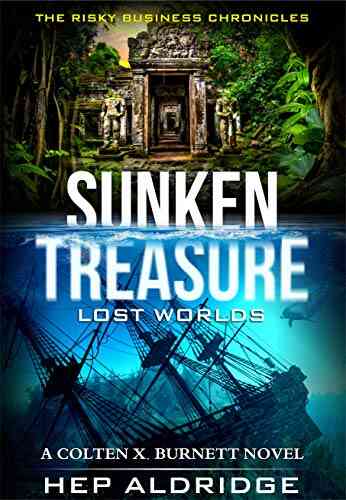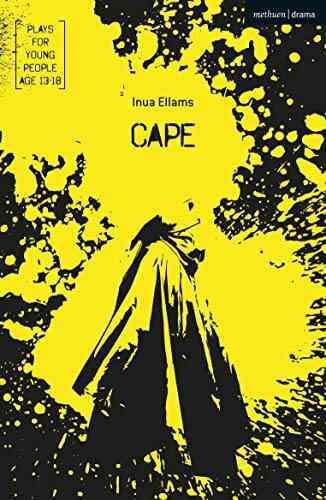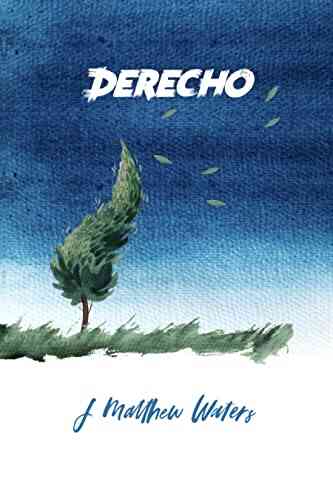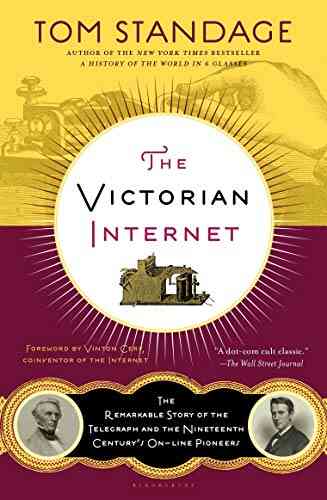The New History of Humanity: Uncovering Ancient Secrets and Unlocking Our Origins

Have you ever wondered about the true origins of our species? The fascinating story of humanity’s journey on this planet spans millions of years, with countless chapters filled with triumphs, defeats, discoveries, and mysteries. In this article, we will delve into the exciting new history of humanity, exploring recent findings, groundbreaking research, and the intriguing questions they raise.
The Dawn of Human History
Our story begins in Africa, where the earliest known human ancestors originated. It is believed that modern humans, Homo sapiens, evolved from earlier hominin species, such as Homo erectus and Homo habilis. The discovery of ancient fossils and genetic analysis have shed light on our evolutionary path, challenging traditional beliefs and rewriting the narrative of our origins.
For centuries, it was widely accepted that Homo sapiens originated in Africa around 200,000 years ago. However, recent studies have found evidence suggesting an even earlier emergence of our species. Fossil remains discovered in Morocco indicate that Homo sapiens might have existed as early as 300,000 years ago.
4.5 out of 5
| Language | : | English |
| File size | : | 8934 KB |
| Text-to-Speech | : | Enabled |
| Screen Reader | : | Supported |
| Enhanced typesetting | : | Enabled |
| X-Ray | : | Enabled |
| Word Wise | : | Enabled |
| Print length | : | 702 pages |
This new discovery has sparked debates among scientists, pushing the boundaries of our understanding of human evolution. Questions about migration patterns, interbreeding with other hominin species, and the factors that led to our species' dominance are being reexamined as we unravel the complexities of our ancient past.
Exploring Ancient Civilizations
As we move forward in time, the development of ancient civilizations becomes a pivotal point in our history. From Mesopotamia, ancient Egypt, and the Indus Valley to the Mayans, Aztecs, and Incas, these civilizations left behind a wealth of knowledge and artifacts that provide a glimpse into their sophisticated societies.
New discoveries are constantly expanding our understanding of these ancient civilizations. Recent excavations in Guatemala's rainforests have revealed the extent of the Maya civilization, dispelling previous misconceptions. Sophisticated agricultural practices, stunning architecture, and intricate writing systems demonstrate the complexity of their society.
Similarly, ongoing research in Egypt has brought to light hidden chambers in the Great Pyramid of Giza, suggesting that we may still have much to learn about one of the most iconic ancient civilizations. These findings spur our curiosity and drive us to explore further, unraveling the secrets buried beneath the sands of time.
The Mystery of Ancient Artifacts
Ancient artifacts have always captivated our imagination, telling stories of our ancestors' skills, beliefs, and accomplishments. The discovery of unique artifacts not only enriches our understanding of past civilizations but also raises puzzling questions about the capabilities of ancient humans.
One such example is the Antikythera Mechanism, an ancient Greek device dating back over 2,000 years. When it was discovered in a shipwreck off the coast of the Greek island Antikythera, it baffled scientists. This intricate mechanism, with its complex gears and dials, is believed to be an early analog computer, capable of predicting astronomical events.
Recent advancements in technology have allowed researchers to further study the Antikythera Mechanism, unlocking its secrets and revealing its remarkable sophistication. This fascinating artifact challenges our assumptions about the intellectual capabilities of ancient civilizations and fuels speculation of lost ancient knowledge.
Unraveling Genetic Discoveries
Over the years, advancements in genetic research have revolutionized our understanding of human history. DNA analysis has enabled us to trace our ancestry, uncovering surprising connections and migrations.
The study of ancient DNA has significantly contributed to our knowledge of human evolution and migration patterns. Genetic analysis of ancient remains found in Siberia, for instance, revealed a previously unknown hominin species, the Denisovans, who interbred with both Neanderthals and modern humans.
Moreover, DNA studies have provided insights into the origins and spread of agricultural practices in ancient civilizations. By analyzing genetic material from ancient bones, researchers have discovered that the transition from hunting and gathering to agriculture occurred at different times in various parts of the world, reshaping our understanding of human development.
Unveiling Human History through Archaeology
Archaeology continues to be a vital field in uncovering humanity's past. Ongoing excavations and sophisticated techniques are revealing new sites and artifacts, painting a more detailed picture of our ancient history.
For example, recent archaeological findings in Turkey unveiled a lost city believed to be more than 2,800 years old. The well-preserved remains of this Hittite city provide valuable insights into the ancient Anatolian civilization, challenging previous assumptions about its geographical extent and political influence.
Similarly, the discovery of the underwater city of Heracleion off the coast of Egypt has brought to light a lost civilization that was once a bustling trade hub. The relics recovered from the depths of the sea offer a glimpse into a forgotten world and shed light on the cultural and economic exchanges of the time.
Continuing the Journey
The new history of humanity is an ongoing narrative, with discoveries and revelations reshaping our understanding of our species' origins and the ancient civilizations that preceded us. Each archaeological find, genetic revelation, and ancient artifact brings us one step closer to unraveling the mysteries of our past.
As we continue to delve into the deep recesses of time, driven by our insatiable curiosity, we uncover ancient secrets and connect the dots of our shared heritage. The story of humanity, with its twists and turns, is a testament to our resilience, ingenuity, and endless quest for knowledge.
Join us on this exhilarating journey of exploration as we uncover the new history of humanity, discovering where we came from and, ultimately, who we are.
4.5 out of 5
| Language | : | English |
| File size | : | 8934 KB |
| Text-to-Speech | : | Enabled |
| Screen Reader | : | Supported |
| Enhanced typesetting | : | Enabled |
| X-Ray | : | Enabled |
| Word Wise | : | Enabled |
| Print length | : | 702 pages |
INSTANT NEW YORK TIMES BESTSELLER
A dramatically new understanding of human history, challenging our most fundamental assumptions about social evolution—from the development of agriculture and cities to the origins of the state, democracy, and inequality—and revealing new possibilities for human emancipation.
For generations, our remote ancestors have been cast as primitive and childlike—either free and equal innocents, or thuggish and warlike. Civilization, we are told, could be achieved only by sacrificing those original freedoms or, alternatively, by taming our baser instincts. David Graeber and David Wengrow show how such theories first emerged in the eighteenth century as a conservative reaction to powerful critiques of European society posed by Indigenous observers and intellectuals. Revisiting this encounter has startling implications for how we make sense of human history today, including the origins of farming, property, cities, democracy, slavery, and civilization itself.
Drawing on pathbreaking research in archaeology and anthropology, the authors show how history becomes a far more interesting place once we learn to throw off our conceptual shackles and perceive what’s really there. If humans did not spend 95 percent of their evolutionary past in tiny bands of hunter-gatherers, what were they doing all that time? If agriculture, and cities, did not mean a plunge into hierarchy and domination, then what kinds of social and economic organization did they lead to? The answers are often unexpected, and suggest that the course of human history may be less set in stone, and more full of playful, hopeful possibilities, than we tend to assume.
The Dawn of Everything fundamentally transforms our understanding of the human past and offers a path toward imagining new forms of freedom, new ways of organizing society. This is a monumental book of formidable intellectual range, animated by curiosity, moral vision, and a faith in the power of direct action.
Includes Black-and-White Illustrations
Do you want to contribute by writing guest posts on this blog?
Please contact us and send us a resume of previous articles that you have written.




















Light bulbAdvertise smarter! Our strategic ad space ensures maximum exposure. Reserve your spot today!

 Connor MitchellUnveiling a World of Adventure: My Quiet Blacksmith Life In Another World...
Connor MitchellUnveiling a World of Adventure: My Quiet Blacksmith Life In Another World... Oliver FosterFollow ·8.2k
Oliver FosterFollow ·8.2k Seth HayesFollow ·6.5k
Seth HayesFollow ·6.5k Thomas PynchonFollow ·13.3k
Thomas PynchonFollow ·13.3k Norman ButlerFollow ·8.1k
Norman ButlerFollow ·8.1k Heath PowellFollow ·9.2k
Heath PowellFollow ·9.2k Greg FosterFollow ·13.1k
Greg FosterFollow ·13.1k Jedidiah HayesFollow ·2.9k
Jedidiah HayesFollow ·2.9k Pete BlairFollow ·13k
Pete BlairFollow ·13k

 Jesus Mitchell
Jesus MitchellUnveiling the Cosmic Mystery: The Star Emkay Connor...
The universe is an endless expanse filled...
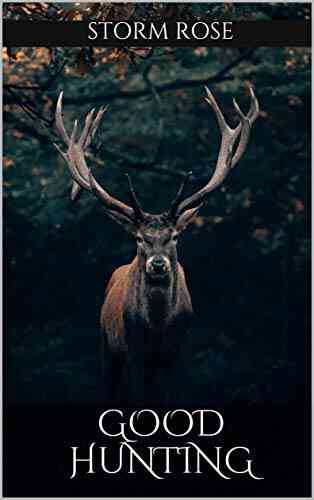
 Roy Bell
Roy BellGood Hunting: Can You Kill the King? - A Thrilling...
Are you ready for an...

 Gary Cox
Gary CoxThe Face Changers: Jane Whitefield - A Master of Disguise
Imagine a world where you could change...

 Dashawn Hayes
Dashawn HayesChristmas Wishes Key Largo Christmas: A Magical...
The holiday season is truly a time of wonder...
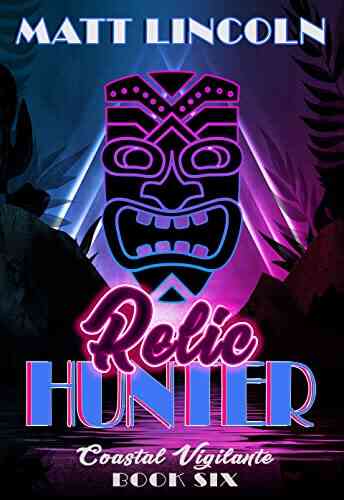
 Kirk Hayes
Kirk HayesUnearth the Mysteries with Relic Hunter Coastal Vigilante
Welcome to the world of Relic...

 Kevin Turner
Kevin TurnerPlaying With Myself: Randy Rainbow Takes the Stage
Do you enjoy music, comedy, and quick-witted...

 Virginia Woolf
Virginia WoolfTank Blue Collar Billionaires Malone: The Inspiring Rags...
When you think of billionaires, images of...

 Norman Butler
Norman ButlerGive The Baby To The Fuhrer - A Gripping Military Fiction...
The Third Reich's involvement in World...

 Mike Hayes
Mike HayesConfessions of a Sociopath: Unveiling the Dark Mind
Have you ever wondered what goes on...

 Austin Ford
Austin FordThe Lost Nebula Lost Starship 16: An Epic Journey Beyond...
Have you ever dreamt of embarking on a...

 Guillermo Blair
Guillermo BlairPoison Orchids: A Darkly Compelling Psychological...
If you're a fan of gripping psychological...

 Carlos Fuentes
Carlos FuentesApache Nifi 51 Interview Questions: A Comprehensive Guide...
Are you preparing for a job interview that...
4.5 out of 5
| Language | : | English |
| File size | : | 8934 KB |
| Text-to-Speech | : | Enabled |
| Screen Reader | : | Supported |
| Enhanced typesetting | : | Enabled |
| X-Ray | : | Enabled |
| Word Wise | : | Enabled |
| Print length | : | 702 pages |


